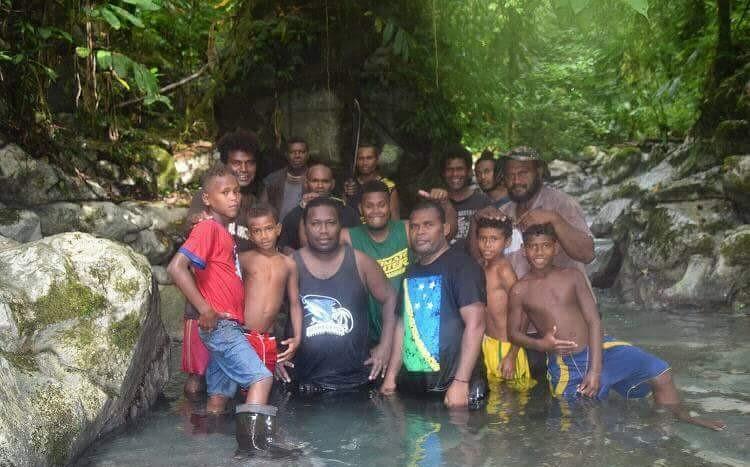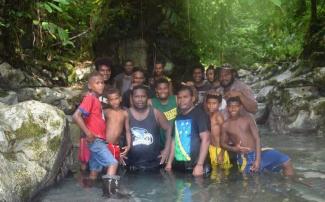
Preserving terrestrial and marine lands and natural resources of the Ahetaha Peoples
The mission of Ahetaha Water Conservation Association (AWCA) is to bring together resource owners of Ahetaha in Aiaisi ward 19, in East Are’Are Constituency, Malaita Province in the Solomon Islands, to work collaboratively towards the conservation of both terrestrial and marine resources in relation to resource management.
In East Are’Are, Ahetaha Tribal members have seen their rich rainforest resources and terrestrial and freshwater species diminish over the last twenty years. They also face many challenges, one of which is an ever-increasing population, which has put significant pressure on the Tribe’s limited water, tropical rainforest, land, and mangrove forest resources. This has resulted in an unsustainable level of harvesting that sometimes causes family and Tribal disputes. One of the chiefs was very vocal about establishing an organisation to unify the whole Tribe for one common purpose. He first convinced a few relatives to protect the mangroves and reefs along the seafront of the small village of Ahetaha. Seeing that when they work together they can achieve more than they could have realised alone, the AWCA was born.
There are limitations to the application of a conservative marine protected area approach in East Are’Are in the context of customary ownership of land and resources, and limited government capacity. There are a few formal protected areas, mostly established on customary land under Tribal ownership, but with little management capacity.
AWCA is working towards the conservation of dugong and green turtle recovery and seagrass management in East Are’Are because of uncontrolled killing for food, especially during cultural feasting. The current threats and challenges to the survival of the dugong include injury and often death when accidentally hit by boats; fishermen are hunting them for feasting and cultural events; and, they get caught in fishing nets at night. There has been no past intervention or regulation prior to the start of AWCA.
The AWCA has begun to pursue and undertake this marine protection project along with its prior standing effort to affect conservation only on land. In their communities, Ahetaha people have taken a cultural approach to conservation by restricting use of certain areas like reefs and fishing grounds for certain periods of time to preserve it for a specific purpose, like feasting. The community is involved in identifying and mapping community resources and capacities for the conservation of species and natural resources.
As a means to mitigate sea level rise in the area, AWCA is encouraging people related to the Ahetaha Tribe to plant mangrove trees at the river mouth and seafront. In 2016, the community chiefs established rules to safeguard designated areas from being exploited.
The project to preserve terrestrial and marine natural resources of the Ahetaha Peoples, partially funded by the Keepers of the Earth Fund, will be realized through participatory approaches including participatory learning and action tools appropriate for children, youth, women and men, by motivating them to contribute to community-led conservation action plans.
As as an agent of change, Ahetaha wants to ensure that these resources are used by resource owners in a sustainable manner.

